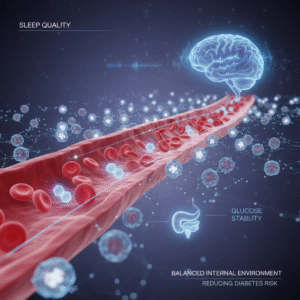Discover the concerning correlation between night shift work and ovarian cancer risk in women. Learn about the latest research findings and implications for women’s health.
Night Shift Work, Ovarian Cancer Risk: In a recent study published in Occupational and Environmental Medicine, researchers discovered a concerning correlation between night shift work and the development of ovarian cancer in women.
The study, which involved over 3,000 participants, revealed that women working night shifts faced an increased risk of ovarian cancer compared to those working regular daytime hours.
Specifically, the research found that women working night shifts had a 24 percent higher risk of advanced ovarian cancer and a 49 percent higher risk of early-stage ovarian cancer.
Understanding the Connection Between Night Shift Work and Ovarian Cancer
One fascinating aspect of the study was the observation that women who naturally preferred evening activities, often referred to as “night types,” had a 7 percent lower risk of developing ovarian cancer.
This discovery prompted further exploration into the potential bi-directional relationship between individual preferences for nighttime activities and cancer risk.
Dr. Parveen Bhatti, an epidemiology researcher at Fred Hutchinson Cancer Research Center, highlighted the importance of these findings, emphasizing that while they provide suggestive evidence of an association between night shift work and ovarian cancer, further research is needed to establish definitive proof.
Exploring the Biological Mechanisms Behind the Risk
One of the key hypotheses put forth by the researchers is the potential impact of disrupted melatonin production on ovarian cancer risk.
Melatonin, a hormone primarily produced at night, plays a crucial role in regulating various physiological processes, including the balance of reproductive hormones such as estrogen.
Shift work, particularly night shifts, can disturb the natural production of melatonin, leading to imbalances in hormone regulation that may contribute to an increased risk of ovarian cancer.
Implications for Women’s Health and Ovarian Cancer Prevention
Given the alarming statistics surrounding ovarian cancer, with over 22,000 women diagnosed annually in the United States alone and more than 15,000 deaths attributed to the disease, understanding and addressing potential risk factors like night shift work are of paramount importance.
With very few known risk factors for ovarian cancer, this study underscores the need for further research to elucidate the precise mechanisms through which shift work increases cancer risk.
Mitigating Risks and Promoting Women’s Wellbeing
In light of these findings, it is essential for healthcare professionals to consider the implications of night shift work on women’s health, particularly in relation to ovarian cancer risk.
Women engaged in shift work, especially night shifts, should be aware of these potential risks and take proactive measures to mitigate them. Simple lifestyle adjustments, such as optimizing sleep hygiene, maintaining a healthy diet, and engaging in regular physical activity, can help support overall wellbeing and potentially reduce the impact of shift work on cancer risk.
Conclusion
The association between night shift work and ovarian cancer risk, as revealed by recent research, sheds light on an important yet often overlooked aspect of women’s health.
By further investigating the biological mechanisms underlying this relationship and advocating for preventative measures, we can empower women to make informed choices about their work schedules and prioritize their health and wellbeing.
As we continue to uncover the complexities of cancer risk factors, addressing the impact of shift work on ovarian cancer represents a critical step towards enhancing women’s health outcomes and promoting a healthier future for all.
Frequently Asked Questions
What is the association between night shift work and ovarian cancer risk?
Night shift work has been linked to a higher risk of ovarian cancer in women, with those working night shifts facing a 24% higher risk of advanced ovarian cancer and a 49% higher risk of early-stage ovarian cancer.
How can women reduce the impact of night shift work on ovarian cancer risk?
Women engaged in shift work can take proactive steps to mitigate the potential risks associated with night shifts. Prioritizing good sleep hygiene, maintaining a healthy lifestyle, and being aware of the implications of shift work on cancer risk are essential strategies for promoting overall wellbeing.
Sources
- National Sleep Foundation: https://www.sleepfoundation.org
- Mayo Clinic – Sleep Health: https://www.mayoclinic.org
- NIH – Neurological Disorders: https://www.ninds.nih.gov
- CDC – Sleep and Sleep Disorders: https://www.cdc.gov/sleep
- WebMD – Sleep Disorders: https://www.webmd.com/sleep-disorders
- Healthline – Sleep: https://www.healthline.com/health/sleep








